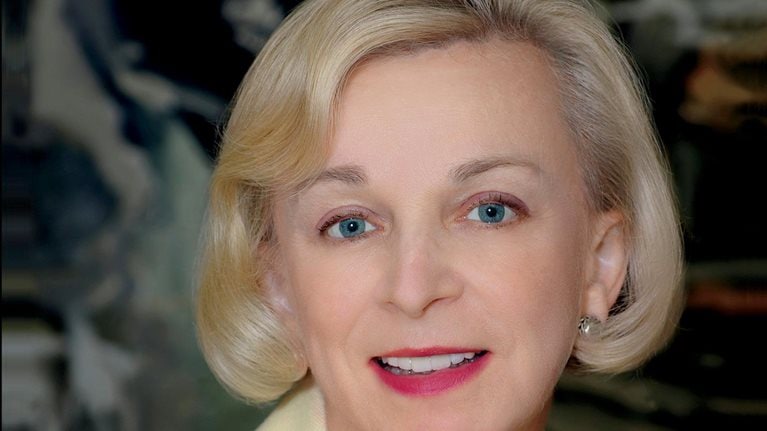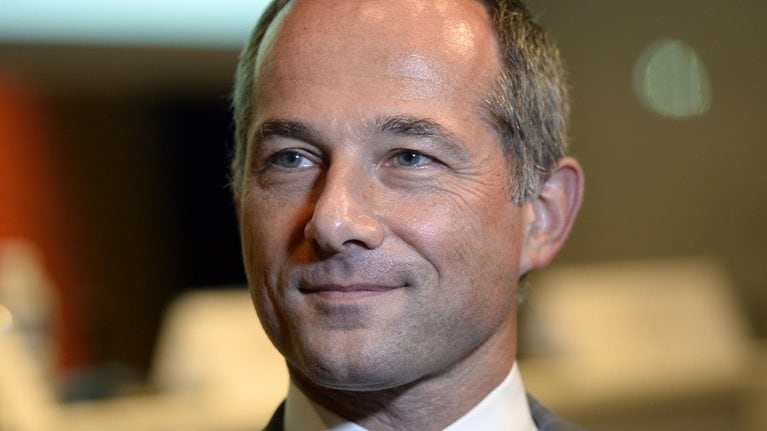With 165 hospitals, 113 freestanding surgery centers, and more than 200,000 employees in the United Kingdom and the United States, Nashville-based Hospital Corporation of America (HCA) is one of the world’s largest operators of health-care facilities. Chairman and CEO Richard M. Bracken is steering his publicly traded company through the significant changes now transforming the health-care industry—and doing so amid considerable uncertainty. For Bracken, the leadership challenge comes down to getting the balance right between performing in the short term and taking the necessary steps to position his company to cope successfully under multiple possible scenarios in the future.
“The nature of our business is such that we must produce a highly efficient and quality service with predictable clinical outcomes, 24 hours a day, seven days per week,” Bracken says. “By necessity, this creates a daily focus that is ever-present throughout the organization. However, we also must be cognizant of forces that are fundamentally changing the health-care delivery system in America—changes that will transform our organization in the years to come. How we strike the right balance between short- and long-term performance metrics and between traditional and evolving strategic approaches consumes much of our time.”
In weighing these trade-offs, Bracken draws from 32 years of experience at HCA, which, he feels, has helped to define his approach to leadership and helps him and his top team get these critical recalibrations right. He spoke with McKinsey’s Rik Kirkland, Ramesh Srinivasan, and Rick Schlesinger about leadership, the changing nature of health care in the United States, and how HCA is finding innovative ways to deliver better patient care at a lower cost.
McKinsey: The context seems quite different today than, say, 20 years ago. The pace of change has accelerated, the global economy is increasingly volatile, and there is more disruption across industries. Does today’s environment require greater leadership skills?
Richard Bracken: Although it is a volatile time and the pace of change does seem quicker now, I am hesitant to say that any one operating environment is a tougher test of leadership than another. Of course, business cycles vary, drivers of growth differ over time, and environmental and market-share disruptors are forever present. Importantly, it’s the degree to which these scenarios play out at any given time that defines the leadership skill set required. To me, the important key is to adjust your style and approach to what is required for the situation. Unfortunately, one set of attributes rarely proves to be adequate over a career.
That said, I do think today’s health-care industry presents some particularly unique challenges. At HCA, our starting point for considering any strategic change first must pass a fundamental test: how might such a change affect our ability to provide quality care and service? How well a strategy supports this very first standard significantly influences any action we might take.
McKinsey: Can you elaborate on the leadership skills it takes to meet that challenge?
Richard Bracken: I’m not fond of trying to sum up something as nuanced as leadership skills, but if I had to say what are some of the fundamental attributes of leadership that matter to me, the following would be high on my list.
First, the attitude of the organization toward change is established by the tone set at the top. For me, that means a continued statement, restatement, communication, and validation of the company’s mission and values, which includes reinforcing its culture. This is the CEO’s first and most important job and a clear requirement of leadership. As leaders, we must not only determine the appropriate strategic course but also define how we, as individuals and as an organization, will conduct ourselves. Second, and most obvious, leaders must ensure the development and execution of a clear, well-communicated, and appropriately measured operating plan. Third, effective leaders ensure that the right team, with the right values, is in place to execute the plan and can pivot appropriately when factors change. Fourth, effective leaders show an intellectual flexibility that recognizes there are different ways to achieve goals and objectives within different environments. To me, it is important that environmental and market changes do not modify the company’s, or the executive’s, basic values. And finally, I think a good leader is a problem solver. How an organization deals with problems, failures, and missed opportunities clearly defines an important aspect of its culture.
McKinsey: Given the shifting external environment in health care, how is HCA responding?
Richard Bracken: With regard to current environmental changes in the industry, we believe we are well-positioned to adapt and excel through reliance on certain core strategies—leveraging our size and scale to drive cost efficiencies, using our multimarket positions to test new and innovative ideas, using our collective “operating intellect” to drive best clinical and management practices across the enterprise, and balancing our capital deployment to respond to specific market opportunities. Also, because of the unique size and diversity of our market portfolio, a transitory softness in one geographic market or service area is offset by strength in another. This feature allows us to mitigate market risk and at the same time test new strategies.
Our scale also offers us the flexibility to deploy technology solutions to improve care. One recent example of this is our newly developed clinical-data warehouse, which will provide the basis for a resource that can inform and improve care, support the efficiency of operations, and, we believe, generate growth and new revenue streams.
We have been in development and are in the early stages of harnessing this “big data” resource, which will use our 20 million patient encounters a year to help improve outcomes and support predictive modeling and personalized medicine. While initially the product of all electronic health records, the clinical-data warehouse ultimately is expected to include patient-generated data, as well as data streams from diagnostic devices.
McKinsey: What other big changes may be out there?
Richard Bracken: Our research tells us the consumer is taking a growing and more meaningful interest in the details of his or her care, and that trend is expected to intensify. Generally, the more information we can put at an individual’s disposal—such as condition, treatment, history, cost, options and prognosis—the more effective the patient relationship could be.
For example, we are in the early stages of developing a patient portal, which has the potential to change how patients might participate in their care plans. The portal could centralize an individual’s health-care history, enable the provider to offer suggestions for the personalized care of each patient, and allow for improved communication among the entire care team. So, in the case of an individual who undergoes a knee replacement, for instance, the portal could allow participants to share data and to communicate in a more integrated fashion with regard to aspects of care—pain management, wound care, physical therapy, et cetera. The patient could be an active participant in discussions, which would allow the consumer to take a more dynamic role in his or her advancement. This development could be especially meaningful for patients with ongoing chronic conditions such as diabetes, cancer, or heart disease.
McKinsey: HCA is a complex organization with a large number of individual operating units and a small corporate center. How do you manage that relationship?
Richard Bracken: To begin with, we don’t take the position that corporate leadership in Nashville has all the answers. While certain regulatory standards or other industry requirements dictate a more centralized approach to ensure consistent compliance, we view the collective intellect of our enterprise as one of our most important assets. Our operations people are an integral part of our strategic planning and development. We field-test strategic initiatives so the people who are closest to execution can help shape solutions. By systematically gathering their input—and relying on their collective experience—we build a comprehensive viewpoint. For example, the idea of standardizing the emergency room–treatment process and reducing wait times came from corporate leadership, but the approach, process, and implementation were developed by our clinical and operations personnel. We have had great success in reducing wait times, as well as improving efficiency and the consumer experience.
McKinsey: Given HCA’s scale, how do you as leader stay connected?
Richard Bracken: This is a real issue, and it’s common for CEOs to feel surrounded by people who filter negative information. To get unfiltered information, I’ve found that you must spend significant and quality time in the operations environment. I have an advantage that others may lack. Having been with this company for over 30 years, I know a lot of people across the organization. I get important intelligence directly from them. I can assure you I get very candid input. It is these relationships that can drive a better understanding of a new initiative or identify flaws early in the process.
McKinsey: Any advice for aspiring leaders?
Richard Bracken: First, make sure you’re working in an organization where there is a good fit between your core values and the organization’s values—it will be difficult to be engaged and productive if there is a misalignment. Second, stay focused on delivering in your current position; many otherwise highly capable people are too quick to be thinking about the next promotion. No one likes a team member who is focused on the next opportunity. Also, don’t be intimidated by the tough assignments, the ones others may not want. These are often the places where you can grow and prove yourself. And finally, never forget that taking calculated risks is the mark of a good leader. And once you commit, it’s important never to go at it halfway.


